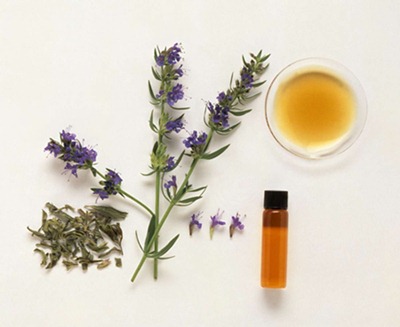Hyssop is a herbaceous plant that has been often used for its medicinal properties for centuries. While it is often more commonly associated with its internal uses, such as in culinary applications or herbal teas, it also offers potential benefits for the skin. However, it’s important to note that scientific research on hyssop’s effects on the skin is limited, and its effectiveness for specific skin conditions may vary. Here are some potential benefits of hyssop for the skin:
Hyssop Benefits for Skin

- Antioxidant Effects: Antioxidants compounds of hyssop help protect the skin from damage caused by free radicals. This could contribute to maintaining youthful-looking and healthy skin.
- Anti-Inflammatory Properties: Hyssop has anti-inflammatory properties. This could potentially make it useful for reducing redness, soothing irritated skin, and calming inflammatory skin conditions such as psoriasis or eczema.
- Wound Healing: Hyssop might contribute wound healing due to its potential antimicrobial and anti-inflammatory properties. It could help speed up the healing process of abrasions or minor cuts and prevent infections.
- Antifungal and Antibacterial Properties: Some studies suggest that hyssop extracts may have antifungal and antibacterial effects. This could be beneficial for addressing minor skin infections or preventing them from occurring.
- Moisturizing Effects: Hyssop-infused formulations, when used in skincare products, could potentially provide hydration to the skin, helping to maintain its moisture balance.
- Astringent Qualities: Hyssop’s astringent properties may help tighten and tone the skin, which could be beneficial for improving overall skin texture and reducing the appearance of large pores.
- Aromatherapy Benefits: When diluted properly, hyssop essential oil can be used in aromatherapy. Inhaling the scent of hyssop oil might have stress-relieving and calming effects, which could indirectly contribute to healthier-looking skin.
How to Use Hyssop for Skin?

When using hyssop for skincare, it’s important to exercise caution and be sure that you’re using it properly to avoid any adverse reactions. Here are some basic and important guidelines for using hyssop for skin:
- Hyssop Essential Oil Dilution: Hyssop essential oil is concentrated and potent, so it should be diluted before applying it to the skin. Blend a few drops of hyssop essential oil with a carrier oil, such as sweet almond oil, jojoba oil, or coconut oil. A safe dilution ratio is often around 1-2% essential oil to carrier oil. Perform a patch test on a small area of skin to check for any irritation or allergic reactions before applying hyssop essential oil to a larger area.
- Hyssop-Infused Products: Look for skincare products that contain hyssop essential oil or hyssop extract as an ingredient. These products are created with appropriate concentrations and can be applied as directed on the packaging.
- DIY Masks and Serums: You can add a couple of drops of hyssop essential oil to your favorite serum or facial mask. Be sure to follow proper dilution guidelines and conduct a patch test before applying it to your face.
- Facial Steam: Add a couple of drops of hyssop essential oil to a bowl of hot water and lean over the bowl with a towel draped over your head to create a steam tent. This can open up your pores and offer potential benefits for the skin.
- Aromatherapy: You can also use hyssop essential oil for aromatherapy purposes. Add a few drops of the diluted hyssop essential oil to a bowl of warm water or a diffuser and inhale the steam. This can have a calming and relaxing effect and indirectly contribute to healthier-looking skin.
- Consult a Professional: Before using any herbal remedy or hyssop on your skin, consult with a skincare professional or dermatologist. They can provide personalized advice based on your existing skin conditions, skin type, and potential interactions with other skincare products you might be using.
- Avoid Sun Exposure: Some essential oils, including hyssop oil, can increase the skin’s sensitivity to sunlight. If you’re using hyssop on your skin, make sure to apply it when you won’t be exposed to direct sunlight shortly afterward or in the evening. If you do go out, use appropriate sun protection.
Remember that individual reactions to herbal remedies can vary, and what works well for one person might not work for another. It’s crucial to exercise caution when using herbal remedies on the skin, as they might cause adverse reactions in some individuals, especially those with existing allergies or sensitive skin. Before using any herbal remedy or hyssop on your skin, consider performing a patch test on a small area of skin to check for any irritation or allergic reactions.
Furthermore, since scientific research on hyssop’s effects on the skin is limited, it can be a good idea to consult with a skincare professional or dermatologist before adding hyssop or hyssop-based products into your skincare routine, specially if you’re seeking treatment for a specific skin condition.


